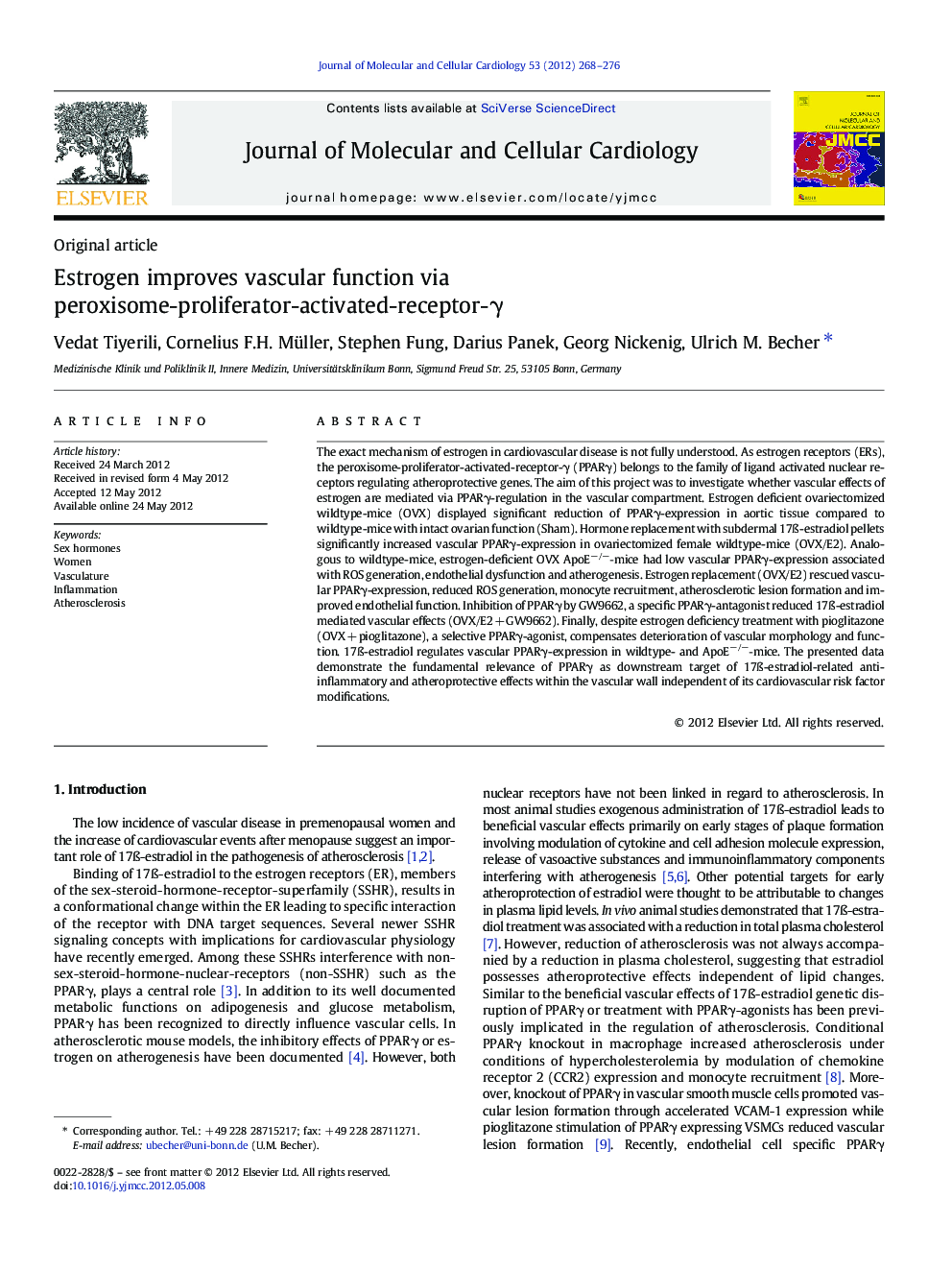| کد مقاله | کد نشریه | سال انتشار | مقاله انگلیسی | نسخه تمام متن |
|---|---|---|---|---|
| 2190625 | 1097804 | 2012 | 9 صفحه PDF | دانلود رایگان |

The exact mechanism of estrogen in cardiovascular disease is not fully understood. As estrogen receptors (ERs), the peroxisome-proliferator-activated-receptor-γ (PPARγ) belongs to the family of ligand activated nuclear receptors regulating atheroprotective genes. The aim of this project was to investigate whether vascular effects of estrogen are mediated via PPARγ-regulation in the vascular compartment. Estrogen deficient ovariectomized wildtype-mice (OVX) displayed significant reduction of PPARγ-expression in aortic tissue compared to wildtype-mice with intact ovarian function (Sham). Hormone replacement with subdermal 17ß-estradiol pellets significantly increased vascular PPARγ-expression in ovariectomized female wildtype-mice (OVX/E2). Analogous to wildtype-mice, estrogen-deficient OVX ApoE−/−‐mice had low vascular PPARγ-expression associated with ROS generation, endothelial dysfunction and atherogenesis. Estrogen replacement (OVX/E2) rescued vascular PPARγ-expression, reduced ROS generation, monocyte recruitment, atherosclerotic lesion formation and improved endothelial function. Inhibition of PPARγ by GW9662, a specific PPARγ-antagonist reduced 17ß-estradiol mediated vascular effects (OVX/E2 + GW9662). Finally, despite estrogen deficiency treatment with pioglitazone (OVX + pioglitazone), a selective PPARγ-agonist, compensates deterioration of vascular morphology and function. 17ß-estradiol regulates vascular PPARγ-expression in wildtype- and ApoE−/−‐mice. The presented data demonstrate the fundamental relevance of PPARγ as downstream target of 17ß-estradiol-related anti-inflammatory and atheroprotective effects within the vascular wall independent of its cardiovascular risk factor modifications.
► Lack of 17ß-estradiol reduces vascular PPARγ-expression.
► Supplementation of 17ß-estradiol induces up-regulation of arterial PPARγ-expression.
► Estrogen-dependent PPARγ-expression displayed atheroprotection.
► PPARγ-antagonist reduced PPARγ-expression and promoted endothelial dysfunction.
► PPARγ-agonism rescued detrimental vascular effects of 17ß-estradiol shortage.
Journal: Journal of Molecular and Cellular Cardiology - Volume 53, Issue 2, August 2012, Pages 268–276